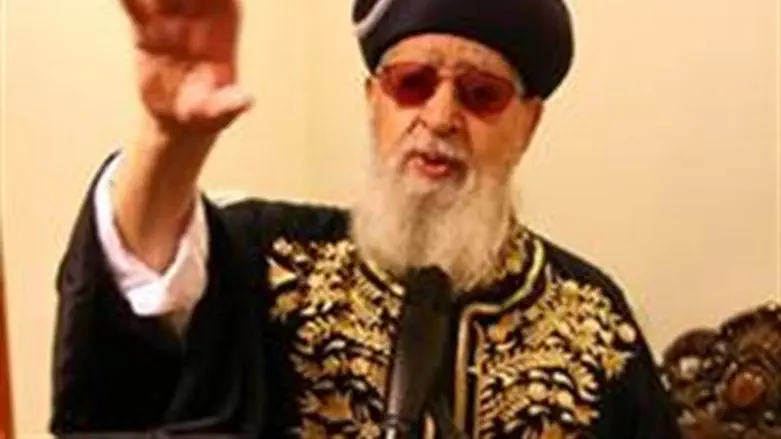
None other than former Chief Rabbi and Shas Sephardi spiritual leader Rabbi Ovadia Yosef rules that a woman can recite the Scroll of Esther on Purim if no man is available.
The Book of Esther, known in Hebrew as Megillat Esther, recounts the story of the Persian empire, in which the wicked Haman plotted to destroy all the Jews because Mordechai, the uncle of Esther, refused to bow down to him, as if Haman were the Almighty. Esther became the Queen and a tale of topsy-turvy events resulted in Haman, who planned to hang Mordechai, being hanged before he could carry out his plot.
Megillat Esther is recited on the evening and on the day of Purim, which Jews around the world celebrate this week. Traditionally, a man chants Megillat Esther in a quorum – minyan – of at least 10 men, but women as well as men are required to hear every word of the Megillah because all of the Jews -- men and women -- were saved from destruction.
What happens if no man in the minyan is knowledgeable enough to read the Megillah and allow every one to perform the mitzvah of hearing it? Can a woman do so?
Women are not called to the Torah during the reading of the Biblical verses, mainly out of reasons of modesty. For the same reason, men and women sit separately in synagogues, but they have no obligation to hear the Torah or to pray in a minyan, unless they take it upon themselves personally, because women are freed from time-dependent commandments.
However, Rabbi Yosef ruled this week, in discussing the laws concerning the rereading of the Megillah, “If there are no men who know how to read in a minyan, and [perhaps] they are farmers, and if there is a girl who has learned in our institutions and knows how to read Megillat Esther properly, the woman is allowed to read for everyone if there is no other choice.
She also should say all three blessings that are recited before the reading, the Rabbi added.
“Prepare your girls,” Rabbi Yosef added. “They should be ‘chazaniyot’ [leaders in recital of prayers].'”